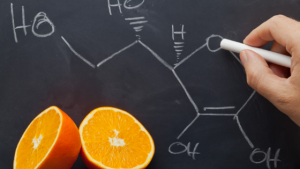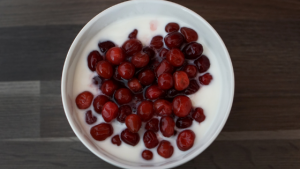
Do you feel “off” but don’t really know why?
Is your libido quickly dwindling?
Are you gaining weight around your midsection and losing muscle mass?
Are you feeling fatigued, low on energy, irritable, and anxious?
Do you just not feel like yourself?
When patients come to me reporting a sense of just not feeling right but can’t explain why it’s often linked to low testosterone.
Low testosterone is incredibly common. 1 in 4 men over the age of 30 suffers from low testosterone that is severe enough to impact their daily lives.
Let’s take a look at everything you need to know about low testosterone start to finish, so you can start to take back control of your sexual and overall wellbeing.
What is testosterone?
Testosterone is a steroid hormone produced in the testes (for males), and in small amounts in female ovaries. A small amount of testosterone is also produced in the adrenal glands in both men and women. Testosterone production is regulated by the pituitary glands and hypothalamus (area of the brain that controls the pituitary). It’s a hormone, so it’s part of the endocrine system.

Although women have testosterone, it’s considered the essential male hormone. Testosterone is what makes men masculine. It’s the hormone that makes you go through all the puberty changes: grow body and facial hair, develop larger genitals, take an interest in sex, and even start to develop muscles.
We’re introduced to testosterone at puberty, but it persists with us throughout life. Without testosterone, men quickly and drastically lose their health.
Testosterone is responsible for:
- Sex drive
- Energy levels
- Strength and muscle mass
- Balanced weight
- Brain health
- Bone health
- Heart health
- Mood and confidence
What is low T?
Low testosterone, also referred to as hypogonadism or testosterone deficiency (TD), is the term used to describe testosterone levels that are lower than the typical range. However, the “normal” range for testosterone is variable dependent upon the doctor you’re talking to. Some consider low testosterone to be below 300 ng/dL, while others say it’s below 250 ng/dL.
Either way, if you have testosterone that’s on the lower end of the spectrum it could be impacting your daily life.
What are the symptoms of low T?
Every man with low T will experience it differently. Some will show severe symptoms, while others just don’t “feel well.” Below are the main symptoms of low testosterone that deserve a second consideration when talking to your doctor.
1. Low sex drive
One of the most common symptoms of low T is a reduced libido or sex drive. If you’re finding that you’re not interested in sex as much as you used to be, even in situations where you want to be sexually interested, you could be dealing with low T.
Testosterone is the hormone responsible for sex drive. High testosterone can make you feel like you’re about to pounce on your partner any chance you get. Low testosterone can impact your ability to even get excited about intercourse. Low T may even impact your masturbation habits because you’re thinking about sex less frequently.
Even with all of the other symptoms of low testosterone, low sex drive tends to be the biggest concern for most men. It’s common to feel less excited or passionate when your sex drive dwindles. Don’t worry, though. Sex drive is one of the first things to reverse when you start to bring your testosterone back up to normal levels!
2. Lethargy

Feeling a little sluggish lately? Can’t keep your energy up throughout the day? Sleeping more or taking naps?
Testosterone is necessary for alertness and energy. It’s the primary hormone that motivates us to get up and out of bed. In fact, testosterone levels naturally rise in the morning as part of your body’s natural alarm clock.
Thus, low T often causes tiredness, lethargy, low energy, and reduced motivation. In fact, low testosterone has even been linked to chronic fatigue syndrome.
3. Loss of muscle mass
Testosterone is a “steroid hormone,” so it’s responsible for giving men those strong, lean muscles. When testosterone is low, muscle mass can quickly dwindle and your once Superman-like strength starts to decline. That’s because there isn’t enough of the “steroid” testosterone to keep the muscles strong.
Worse yet, low T makes it hard to workout properly to regain the strength and muscle you’ve lost. This makes it a double whammy that can kill your lean muscle.
In reverse, the more testosterone your produce, the easier it is for your body to create muscle. One study found that treating with testosterone therapy showed a 27% increase in muscle protein synthesis (the creation of muscles).
Muscle is more than just a hot bod. You need muscle for daily function. It’s also a critical aspect of metabolism and fat burning.
4. Increased body fat
Along with losing muscle mass, low T is correlated with higher levels of body fat. Testosterone plays a role in maintaining weight, likely because of its role in muscle production and metabolism.
Research shows that men with high testosterone are often leaner, while those with low testosterone generally have a higher body fat percentage.
Fat caused by low T especially shows up in the gut. One study found a 22% increase in fat around the abdominals when men had low (nearly zero) levels of testosterone.
This is not only troublesome for confidence issues and body image. A larger waistline also increases the risk of developing heart disease, diabetes, and chronic inflammation. This is especially true because low testosterone causes visceral fat to collect around the organs. There can be serious impacts of testosterone-related weight gain.

5. Erectile dysfunction
Testosterone is the hormone that triggers the release of nitric oxide. Nitric oxide is what helps relax the penile muscles and dilate the blood vessels to allow blood to flow into the penis.
Without nitric oxide, the penis can’t get ready to have an erection. And without testosterone, there’s no nitric oxide. That means that low T can make it nearly impossible to get and keep an erection.
Erectile dysfunction (ED) has a number of causes. However, you can have a good idea your ED is linked to low T if your “spontaneous” erections—like while sleeping—don’t occur as much. This is because there isn’t enough nitric oxide to open up the blood vessels.
If you’re still getting spontaneous erections but having trouble when you want to have sex, then your ED could be caused by an underlying health disorder or psychological concern like stress or performance anxiety.
It’s important to note that low testosterone is not always the cause of erectile dysfunction, and not all men with low T will experience ED. The two are correlated, but there is no proven causal relationship yet.
6. Poor mood

Depression, anxiety, irritability and other mood concerns are often linked to low testosterone as well. This is because testosterone plays an important role in confidence and mood. Research has shown that men (and women) with higher testosterone levels are more likely to be confident and successful, while those with lower testosterone are more self-conscious and stressed.
One study found that men with low T showed more severe symptoms of depression, anxiety, and sexual dysfunction. They also reported a lower quality of life in general.
Another study discovered that testosterone therapy was able to decrease these negative emotions like anger, irritability, and nervousness. This shows promise that low T can reverse major symptoms.
Most men don’t realize this symptom in themselves. If your friends or family say that you aren’t acting like yourself, don’t take it personally. It may be a mood change related to low T, which you should discuss with your doctor.
7. Cognitive decline
A number of men with low T often report “brain fog” or memory loss. They’ll also report a loss of focus and productivity, and they can’t seem to pinpoint the cause. That’s because testosterone plays a significant role in cognitive brain function, especially for memory.
One study of men ages 70+ found that lower testosterone levels were closely related to cognitive decline. In fact, they even found an almost proportional relationship between the two. The lower the T levels, the worse the cognitive decline.
Testosterone levels naturally lower with age. This could play a major role in the decline of cognitive function, especially in older males.
Other symptoms
Although less common, the following symptoms are possible with low T, especially in men suffering from severely low levels.
- Reduced ability to orgasm
- Loss or reduction of body hair
- Size reduction of testes
- Male breast enlargement
- Sweating
- Sleep disturbances
- Osteoporosis
- Anemia
- Infertility
What causes low T?
So we know what low T feels like, but where does it come from?

There are a number of reasons your body might have lower testosterone levels.
One of the most common causes of low T is simply aging. As we get older, our systems start to slow down—including the endocrine system. The body can’t produce hormones at the same rate it used to, and it gets progressively slower each year.
There are three “types” of low T that are categorized based on the cause of the endocrine imbalance.
Primary low T or hypogonadism occurs when the testes aren’t able to produce testosterone. This is usually due to some sort of injury or failure of the organ, like scrotal or testicle injuries, undescended testicles, or mumps. Chemotherapy and radiation therapy, especially for prostate cancer, can also damage these organs and cause testosterone production to slow down.
Secondary hypogonadism occurs when there is an injury or malfunction of the pituitary gland, which is the gland that regulates testosterone and other hormones.
Tertiary hypogonadism occurs when there’s a dysfunction in the hypothalamus, which is the gland in the brain that controls both the pituitary and adrenal glands.
Secondary and tertiary low T are often caused by injuries near the gland or hypothalamus, such as local tumors, gland malformations, or inflammation due to diseases like HIV or tuberculosis. Chemotherapy near either spot can also create a dysfunction.
Anabolic steroids have an impact on testosterone production because they interfere with the pituitary and adrenal glands. Decreased blood flow to the brain can also cause the hypothalamus to stop sending T signals.
Along with these “types” of testosterone deficiencies, there are other potential causes of low T as well:
Hormonal
- Cortisol steal
- High estrogen
- Low zinc
- Low vitamin D
Lifestyle
- Drug abuse
- Lack of sleep
- Low nutrient/vitamin diet
- Obesity
- Sedentary lifestyle
- Smoking
- Stress
Serious diseases
- Diabetes
- Heart disease
- High blood pressure
- Renal disease
How do I know if I have low T?
If you think you might be dealing with symptoms of low T, it’s time to visit your doctor. Physicians will run a blood test that will check total and free testosterone levels. The “normal” male range for testosterone is around 280 to 1,100 ng/dL, though some doctors consider anything below 300 to be “low.”
Most doctors will do a testosterone blood test in the morning. This is when testosterone levels are naturally highest. Doctors want to see your level at its peak, so they can best judge the severity of the problem.
One of the best parts of a low T blood test is that it can also test your blood for other diseases at the same time. Go to the doctor and get your blood drawn just once, and they can do a full workup to check your testosterone, cholesterol, hormones, HCG, and other disease risks.
Check out 7 Testosterone Booting Myths No One Will Tell You About.

What are the treatments for low testosterone?
Your doctor will first try to understand the cause of your low T to best determine treatment. If you have low testosterone due to an underlying disease (heart disease, obesity, diabetes) or treatment (like chemo or radiation), your doctor will likely want to address those concerns first. Treating the underlying cause will help boost your testosterone in turn.
If you’re suffering from low T due to aging or without a clear-cut cause, then your doctor will likely recommend you start with natural treatment options first. Other ways to boost your testosterone naturally and effectively include:
- Healthy dieting
- High intensity interval training
- Intermittent fasting
- Probiotics
- Sex
- Sleep therapy
- Stress reduction
- Vitamin supplementation
- Weight loss
- Yoga
Read: 13 Ways To Increase Testosterone Naturally
If you’re still not seeing success with lifestyle changes, testosterone replacement therapy (TRT) is an option. These options help artificially raise your testosterone to give your body more free-floating and usable testosterone. TRT alternatives include skin patches, gels, injections, and implants.
In the short-term, these options can work well to get you back on track. However, testosterone replacement therapy comes with a number of side effects and risks that shouldn’t be ignored. Learn more about TRT risks here, and talk to your doctor about any concerns you have before starting treatment.
Conclusion
If you think you may be suffering from low T, visit your doctor for a definitive test. The good news is that most men can easily and successfully raise their testosterone levels with lifestyle changes and therapy options.
You don’t have to feel like this forever.
In fact, you can start feeling better RIGHT NOW











 In Male 2.0™, Dr. Tracy Gapin has turned everything we once thought we knew about men’s health and performance upside down. The old model of how to be “a man” is broken. A man who works himself to death. Unfortunately, a man who tries to NOT get sick but isn’t really healthy either. And a man who takes a pill for every ill but is never really cured. That was Male 1.0. Now, imagine being THE MAN ─ owning your performance in the bedroom, the weight room, and the boardroom. Living a fully optimized life. Becoming limitless. This is Male 2.0!
In Male 2.0™, Dr. Tracy Gapin has turned everything we once thought we knew about men’s health and performance upside down. The old model of how to be “a man” is broken. A man who works himself to death. Unfortunately, a man who tries to NOT get sick but isn’t really healthy either. And a man who takes a pill for every ill but is never really cured. That was Male 1.0. Now, imagine being THE MAN ─ owning your performance in the bedroom, the weight room, and the boardroom. Living a fully optimized life. Becoming limitless. This is Male 2.0!













